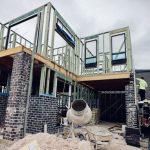Altri profits up 30% to €117 million
Altri brought in €117.4 million in net profits for the first nine months of the year, 30% more than for the same period last year.
The company enjoyed revenues of €805.9 million, up 37.7% on the first nine months of 2021.
Altri is a European reference company in the production of cellulose pulp, in sustainable forest management and in the production of renewable energy in Portugal.
Currently, Altri has 3 mills, two of pulp (Celbi and Celtejo) and another for dissolving pulp (Caima) that essentially produces for the textile market to replace synthetic fibres of fossil origin.
It produces approximately 1.2 million tons of cellulose pulp for the market.
“The financial performance of the Altri Group was influenced by the volume of production, sales, but also prices”, states the company in a communiqué sent on Wednesday to the stock market regulator CMVM.
José Pina, President of Altri says that demand in a growing market with reduced stock levels allied to a solid operational performance also contributed towards the results.
Through Caima, Celbi and Biotek, the Altri Group produced 852,000 tonnes of cellulose fibres in the first nine months of the year “slightly below the like-for-like period (-1.6%) given the planned shutdown of Biotek in May, with overseas markets absorbing 86% of the total”, states the company in a communiqué.
José Pina also says that Altri invested €34.8 million in the first nine months of the year, “double the investment made in the same period last year, maintaining one level below net debt (1.3 times EBITDA), which enabled us to maintain the financial capacity to explore opportunities in the bio-economy market”.
Despite the investment turnover made, which included €9.7 million regarding the new biomass boiler for Caima, the company’s level of debt did not change much.
According to company data, the net debt increased only 0.56% to €358.9 million, an amount that represents 1.3 times EBITDA.
“These are positive numbers, but I emphasise that they were achieved in a challenging environment, specifically with regard to the inflation of the various variable costs. Significant increases were recorded in the price of natural gas as well as chemicals. The average cost of wood was higher, largely reflecting the higher level of imports”, says José Soares de Pina, CEO of Altri.










